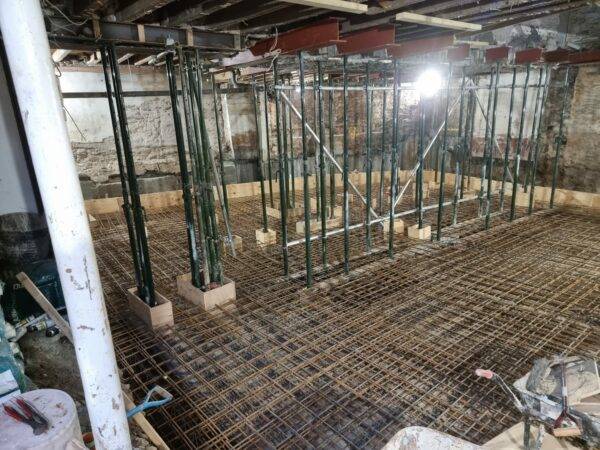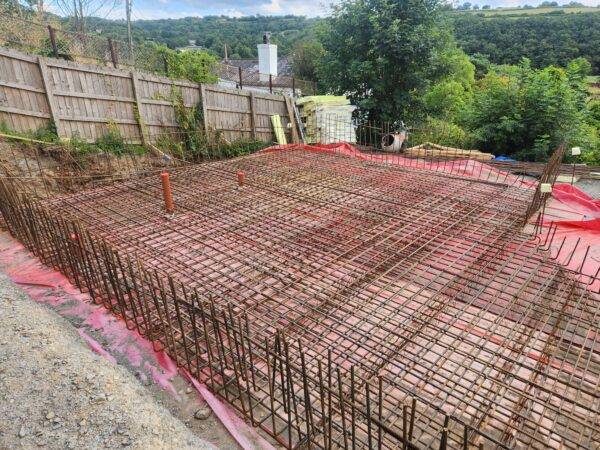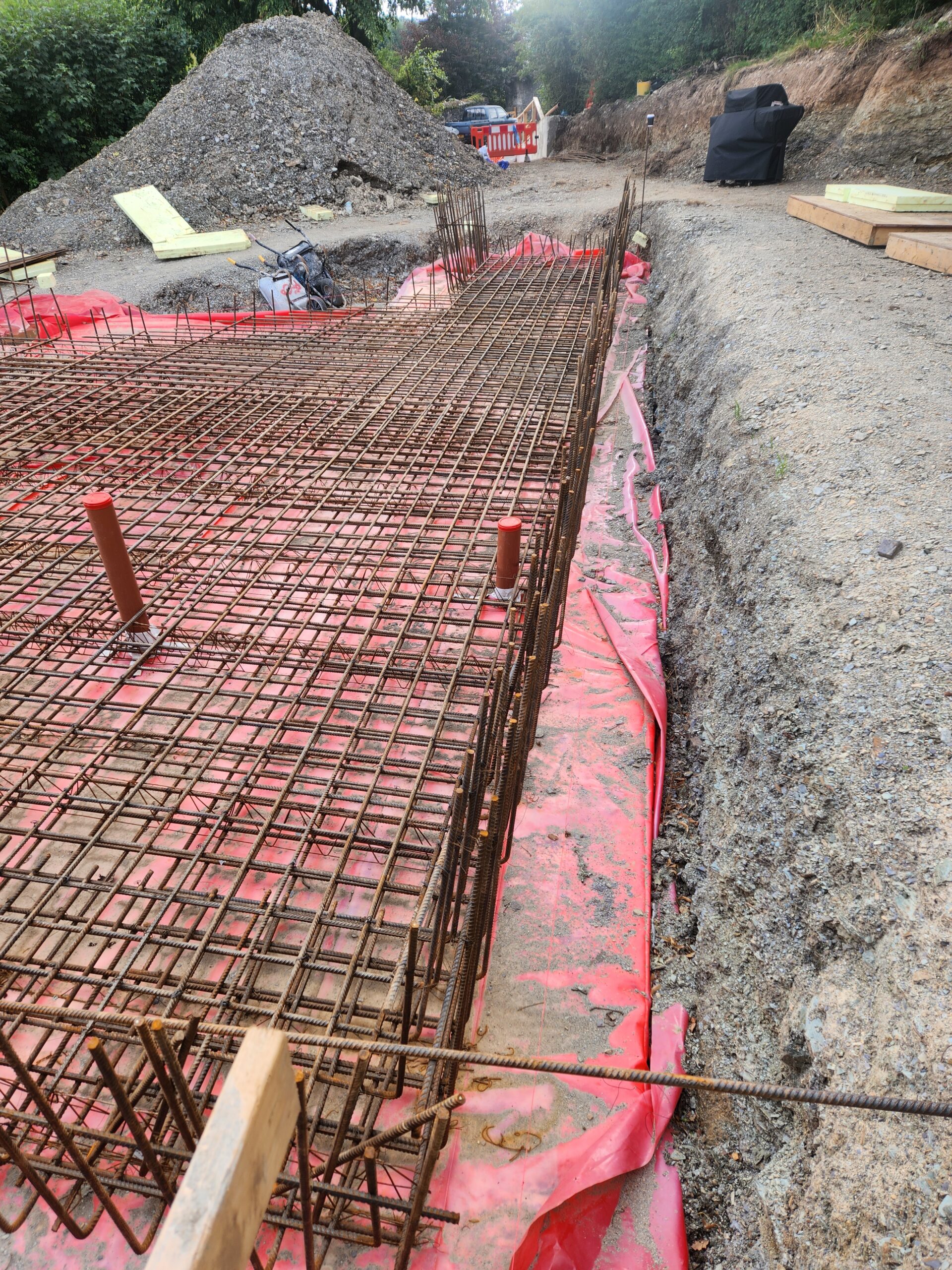Innovations in Concrete House Construction in the UK: Exploring ICF and Reinforcement Necessities
The use of concrete in residential construction offers durability, energy efficiency, and design flexibility, making it a preferred choice for many developers and homeowners in the UK. Among the innovative methods employed, Insulated Concrete Forms (ICF) stand out for their efficiency and effectiveness in creating energy-efficient homes. However, the question of whether to use reinforcement in concrete walls and slabs or opt for unreinforced concrete remains central to the construction process.
Concrete House Construction: Reinforced vs. Unreinforced
Reinforced Concrete: Reinforced concrete, which incorporates steel reinforcement bars (rebars), mesh, or fibers, is designed to compensate for concrete’s relative weakness in tension. The combination of concrete’s high compressive strength with the tensile strength of reinforcement results in a highly durable and resilient structure. In residential construction, reinforced concrete is often used for:
- Foundations and footings to ensure the stability of the structure.
- Load-bearing walls and columns that support significant weight from the building itself and environmental loads such as wind and seismic activity.
- Floors and roof slabs that span large areas or where additional load-bearing capacity is required.
British Standards and Eurocodes, including BS EN 1992 (Eurocode 2), provide comprehensive guidelines on the design and construction of reinforced concrete structures, ensuring safety, durability, and performance.
Insulated Concrete Forms (ICF): ICF construction involves stacking expanded polystyrene blocks or panels to form the walls’ shape, which are then filled with concrete. This method not only offers excellent insulation but also provides the structural integrity of reinforced concrete. ICF walls inherently include reinforcement, as specified by the manufacturer and in accordance with BS EN 1992, to ensure the composite wall system can withstand lateral and vertical loads.
Unreinforced Concrete: Unreinforced concrete, or plain concrete, does not contain reinforcement and relies solely on the concrete’s compressive strength. While less common in structural applications that bear significant loads, unreinforced concrete can be suitable for:
- Non-load bearing walls, where the primary requirement is for partitioning rather than structural support.
- Small residential slabs on grade, such as for patios or walkways, where loading is minimal.
- Certain landscaping elements where aesthetic considerations may outweigh structural ones.
It is crucial to consult with a structural engineer to determine the appropriateness of using unreinforced concrete in any part of a residential project, ensuring compliance with relevant standards and codes.
Applications and Suitability
The decision to use reinforced or unreinforced concrete depends on the specific requirements of the project, including structural load-bearing needs, insulation requirements, environmental considerations, and cost. Reinforced concrete’s versatility makes it suitable for a wide range of applications, offering the strength and durability needed for most structural elements in a house. In contrast, unreinforced concrete is more suited to non-critical structural elements where loads are minimal.
Conclusion
Concrete house construction in the UK, particularly with innovations like ICF, offers promising pathways for building durable, energy-efficient homes. Whether reinforced or unreinforced, concrete’s adaptability to various construction needs—guided by the stringent framework of British Standards and Eurocodes—ensures that residential projects can achieve both aesthetic and functional excellence. For detailed guidance on specific applications and compliance with safety standards, consulting with a structural engineer or construction professional is recommended.
Further Reading and Resources
For more information on concrete construction standards and best practices, the following resources are invaluable:
- Concrete Centre: www.concretecentre.com
- Institution of Structural Engineers: www.istructe.org
- British Standards Institution (BSI): www.bsigroup.com
This exploration into the world of concrete residential construction highlights the critical role of informed decision-making in achieving sustainable, safe, and aesthetically pleasing living spaces.



